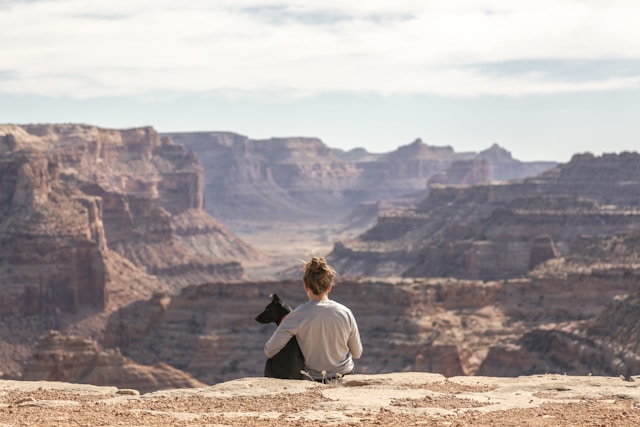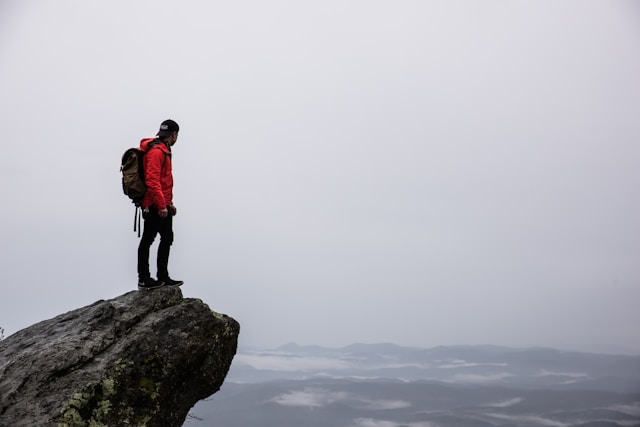Traveling alone is an experience that can vary widely from person to person, often filled with a mix of emotions, challenges, and unique rewards. It’s a journey that can lead to profound personal growth, self-discovery, and a deep sense of freedom. Here, we delve into the multifaceted nature of solo travel, exploring the emotional landscapes it can present, the challenges it poses, and the unparalleled opportunities it offers for personal enrichment.
The Thrill of Freedom and Self-Discovery
One of the most exhilarating aspects of traveling alone is the sheer freedom it affords. Without the need to accommodate anyone else’s preferences or schedules, solo travelers are free to explore destinations at their own pace, make spontaneous decisions, and choose experiences that resonate with their personal interests and desires. This level of autonomy can lead to a deep sense of empowerment and self-reliance, as travelers navigate new environments, solve problems independently, and make choices based solely on their own instincts and desires.
The journey of solo travel often becomes an inward one as well, offering ample opportunity for self-reflection and discovery. Removed from the familiar contexts of daily life, travelers are confronted with their own company, thoughts, and feelings in a way that can be both challenging and incredibly enriching. Many return from their travels with a better understanding of themselves, including their strengths, weaknesses, and the things that truly matter to them.
The Emotional Rollercoaster
Traveling alone can also be an emotional rollercoaster. The initial thrill of setting out on a solo adventure can quickly give way to moments of loneliness, vulnerability, and even fear. These feelings are natural, especially when faced with the unknown or navigating difficult situations without the immediate support of friends or family. However, these challenges often lead to significant personal growth, resilience, and a greater sense of confidence.
Conversely, solo travel can also offer moments of profound joy, peace, and connection. The beauty of a sunset in a new city, the kindness of strangers, or the simple pleasure of a quiet moment in a foreign place can feel all the more intense when experienced in solitude. These moments can lead to a deep appreciation for the world and a sense of connectedness to it, even in the absence of companionship.

Challenges and How to Overcome Them
Solo travel is not without its challenges. Safety can be a concern, especially in unfamiliar environments or when navigating different cultural norms. To mitigate risks, it’s important for solo travelers to research destinations thoroughly, stay aware of their surroundings, and maintain communication with loved ones back home.
Loneliness is another challenge that can be mitigated by staying in hostels, participating in group tours or classes, and being open to meeting new people. Technology also makes it easier to connect with fellow travelers and locals through social media and travel apps designed to bring people together.
The Unique Rewards
Despite its challenges, traveling alone offers rewards that can be deeply transformative. The sense of achievement that comes from navigating a foreign country on your own, the personal insights gained, and the freedom to create your own journey are just a few of the benefits that make solo travel a truly unique experience.
Traveling alone is a deeply personal and variable experience that can challenge and reward in equal measure. It offers unparalleled opportunities for growth, self-discovery, and the freedom to explore the world on your own terms. For those who embrace its challenges, solo travel can be one of the most enriching and life-affirming experiences imaginable.
Building Confidence and Resilience
One of the most significant benefits of traveling alone is the development of confidence and resilience. Each day presents a new set of challenges, from navigating public transportation in a foreign language to dealing with unexpected situations. Overcoming these challenges builds a sense of self-assurance and adaptability that extends far beyond the trip itself. Solo travelers often return home with an increased ability to handle life’s uncertainties and a stronger belief in their own capabilities.
Deepening Cultural Immersion and Connection
Traveling alone also encourages deeper cultural immersion. Without the buffer of familiar faces, solo travelers are more likely to engage with locals, participate in local traditions, and explore off-the-beaten-path destinations. These experiences can lead to a more authentic understanding of the places visited and a greater appreciation for the diversity of the world. The connections made with people from different backgrounds can be incredibly enriching, offering new perspectives and challenging preconceived notions.
The Importance of Mindfulness and Presence
Solo travel fosters a unique sense of mindfulness and presence. With no distractions from companions, travelers are more attuned to their surroundings and more open to the experiences unfolding before them. This heightened awareness can transform simple moments into profound experiences, whether it’s savoring the flavors of a local dish, appreciating the intricate details of an architectural masterpiece, or simply observing the daily life of a new place. The practice of being present not only enhances the travel experience but can also contribute to a more mindful approach to life in general.
The Challenge of Solitude
While solitude can be one of the greatest gifts of solo travel, it can also be one of its greatest challenges. The feeling of isolation, especially during difficult times or in more remote locations, can be daunting. However, it’s in these moments of solitude that many solo travelers find their most significant insights and growth. Learning to enjoy one’s own company is a valuable life skill, and the solitude of travel can accelerate this discovery. Moreover, the digital age has made it easier to bridge the gap between solitude and socialization, allowing travelers to seek out company or support when needed.
Personal Growth and Transformation
Ultimately, the essence of traveling alone lies in its capacity for personal growth and transformation. The combination of freedom, challenges, and new experiences pushes travelers out of their comfort zones and fosters a deeper understanding of themselves and the world around them. Many solo travelers report a sense of transformation following their journeys, describing a shift in perspective, values, or life direction.

Traveling alone is more than just a way to see the world; it’s a journey into the self. The experiences and challenges encountered along the way serve as catalysts for personal development, leading to a richer, more nuanced understanding of life. Despite its challenges, or perhaps because of them, solo travel remains one of the most rewarding adventures one can undertake. It’s an invitation to explore not only the vast and varied landscapes of our planet but also the uncharted territories of our inner selves.
Embracing the Unexpected
One of the defining characteristics of traveling alone is the necessity to embrace the unexpected. Plans may go awry, weather can change, and situations may arise that test the traveler’s patience and adaptability. However, it is precisely these unforeseen changes that can lead to the most memorable and enriching experiences. Learning to navigate and embrace these moments teaches flexibility and the ability to find joy and lessons in the unexpected. This skill, once developed, enriches not only travel experiences but life in general, encouraging a more open and adaptable approach to challenges.
The Power of Making Connections
Despite periods of solitude, solo travel can be incredibly social. Without a travel companion to rely on, solo travelers are more likely to reach out to fellow travelers and locals, forging connections that might not have been made otherwise. These interactions can range from brief exchanges that offer insight into local life to deep friendships that last long after the journey ends. The act of making connections on the road also reinforces the importance of empathy, open-mindedness, and the universal human experience, bridging cultural and linguistic divides.
Learning to Trust
Traveling alone often involves placing trust in strangers, whether it’s asking for directions, accepting hospitality, or following local advice. This leap of faith can be daunting, but it also opens the door to incredible acts of kindness and generosity that reinforce a positive view of humanity. Learning to discern when to trust and how to navigate interactions with strangers is a valuable skill that enhances personal safety and enriches the travel experience.
The Luxury of Self-Indulgence
Solo travel allows for a level of self-indulgence that is often not possible when traveling with others. Whether it’s spending hours in a museum that interests only you, indulging in a leisurely café visit, or changing travel plans on a whim, the journey can be tailored to personal preferences without compromise. This self-indulgence isn’t just about pleasure; it’s a form of self-care that acknowledges and prioritizes personal needs and interests, contributing to overall well-being.
The Return: Bringing the Journey Home
The end of a solo trip does not mark the end of the journey. Solo travelers often return home with new perspectives, insights, and a renewed sense of confidence that permeates their daily lives. The challenges overcome, the connections made, and the lessons learned on the road can inspire changes in lifestyle, career, or relationships. Moreover, the stories and experiences shared can inspire others to explore, dream, and discover on their own.
Traveling alone is a deeply personal experience that defies a one-size-fits-all description. It’s a mosaic of moments—challenging, exhilarating, and serene—that together foster a profound sense of personal growth and understanding. The journey of solo travel is as much about exploring the outer world as it is about navigating the inner one. It teaches resilience, fosters independence, and cultivates a sense of wonder and appreciation for the diversity of the human experience. For those who undertake it, solo travel is not just a way of seeing the world, but a way of seeing themselves and their place within it.







